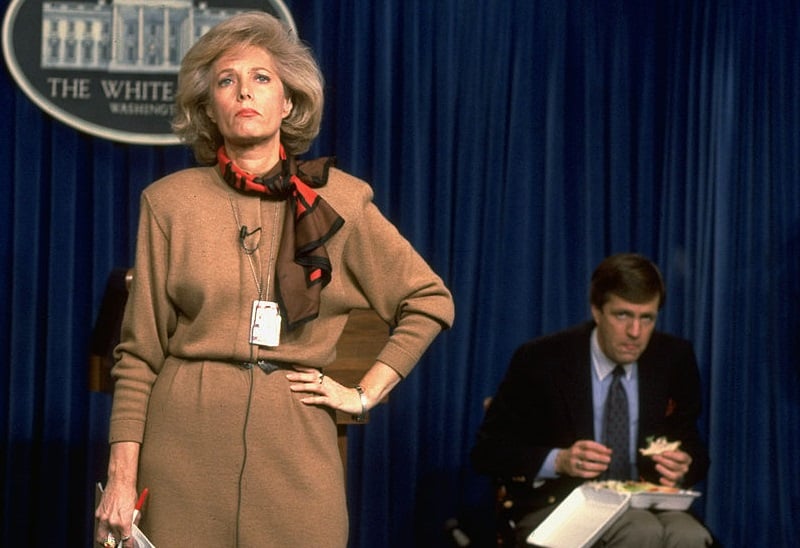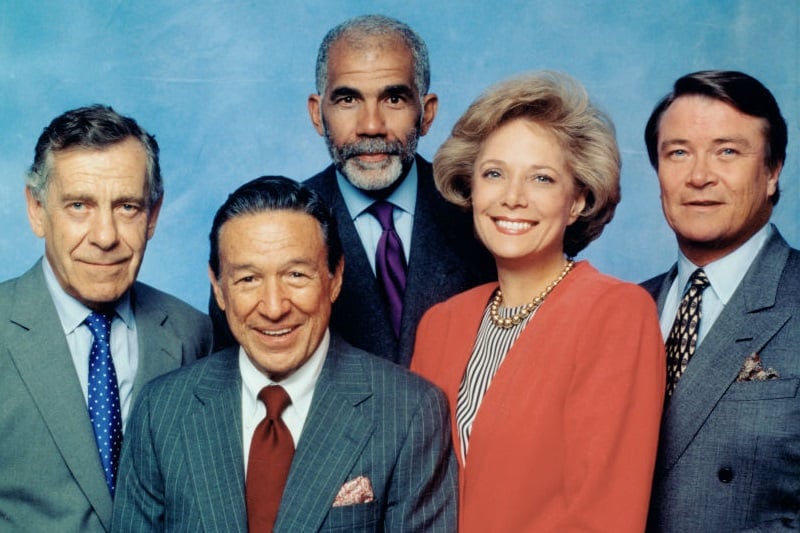The ’60 Minutes’ Legend Who Started as an Affirmative-Action Hire
When a broadcast journalist has had a career like Lesley Stahl’s, many find themselves looking back to see how she got her start. Before all the Emmys — and long before she landed at 60 Minutes — Stahl was a broadcast journalist looking to get her break.
But in the late 1960s, you didn’t find any women anchoring national news programs. (Barbara Walters became the first in 1976.) So Stahl, who’d graduated from Wheaton and worked at WHDH in Boston, couldn’t have seen a clear path into that boys’ club.
That changed in the early ’70s. At that point, networks became conscious of the way their broadcasts didn’t reflect the makeup of the country (especially when it came to gender). And they planned to do something about it immediately.
“The word went out in 1972 that all three networks were looking for women and minorities,” Stahl told the Detroit Free Press in 2017. So she applied and promptly got the job.
Lesley Stahl got hired at a time when networks were ‘desperate’ for women.

Reflecting on her start in the business, Stahl has acknowledged she didn’t face the same sort of hurtles female friends in other professions did. “I was definitely, positively, no mistake about it, hired because of affirmative action,” she told the Free Press.
The thing was, though CBS gave Stahl (and Connie Chung and Bernard Shaw) jobs in its national news operation, they didn’t treat them like other hires. Stahl described the three of them being regarded as “apprentices” with “little children’s desks … in a corridor.”
But Stahl was hungry — and she also had a little luck. She’d moved into the Watergate complex the same month (June 1972) Nixon administration operatives broke into the Democratic National Committee offices there.
With the top CBS correspondents off working on that year’s election campaign, Stahl made a name for herself doggedly following the Watergate story in D.C.
Stahl was getting physically thrown around by White Houses security long before ’60 Minutes.’

In a 2019 profile in The Hollywood Reporter, Stahl recalled being manhandled by security trying to get a comment from Alexander Haig (White House Chief of Staff for Nixon from 1973-74).
“They picked me up and threw me,” she said. After landing on the grass, mostly unharmed, she got back up and started working. By the end of the decade, she’d earned the coveted White House correspondent gig at CBS.
In 1983, she continued rising through the ranks with the Face the Nation moderator job. From there, it was only a matter of time before she made it to the top TV news magazine, 60 Minutes. (She started at the show in 1991.)
Nearly three decades and multiple lifetime achievement awards later, Stahl can laugh about how she got her start at CBS. But then again, she always laughed about it. “We called ourselves affirmative-action babies,” she told the Free Press.
Also see: How Did Barbara Walters Lose Her Power at ‘The View’?


